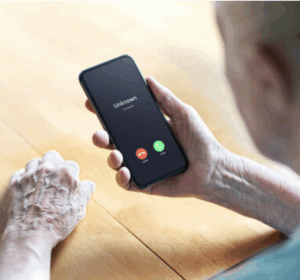Protecting Our Seniors: Staying Vigilant Against Scams
As our loved one’s age, it becomes increasingly important to ensure their safety and well-being, both physically and financially. Unfortunately, a dark reality looms—seniors aged 55 and older are often targeted by scammers who exploit their trust and vulnerability. In light of this growing issue, let’s take a closer look at some common scams and arm ourselves with knowledge to help protect the seniors in our lives.
Understanding the Risk
According to recent statistics, older adults lose billions of dollars each year to fraud. Scammers often use tactics like impersonating government officials, lottery claims, or phishing for sensitive information. These fraudsters are skilled in manipulation and may take advantage of the loneliness or desire for companionship that many seniors experience.
 Common Scams Targeting Seniors
Common Scams Targeting Seniors
1. Tech Support Scams: Many seniors may receive phone calls or pop-up messages claiming to be from reputable tech companies. The message usually warns of a computer virus or security issue, prompting the victim to provide personal information or payment for fictitious services.
2. Romance Scams: With the rise of online dating, scammers often pose as potential companions, building emotional connections to trick individuals into sending money under false pretenses.
3. Imposter Scams: Fraudsters may impersonate family members or friends in distress, claiming they need money urgently. This type of scam preys on emotions and the willingness to help loved ones.
4. Lottery or Prize Scams: Seniors might receive notifications claiming they’ve won a lottery or prize, but the catch usually requires an upfront fee to claim their winnings—money they’ll never see again.
How to Protect Seniors
Education and awareness are key to fighting these scams. Here are some practical steps to help safeguard your loved ones:
– Open Communication: Regularly talk to seniors about potential scams and encourage them to share any suspicious encounters. A strong line of communication can help them feel less isolated and more empowered.
– Educate on Technology: Offer guidance on tech use. Familiarize seniors with how to identify phishing emails and suspicious calls. Remind them to never share personal information over the phone or online without verifying the source.
– Encourage Skepticism: Instruct seniors to be wary of unsolicited calls or messages, and recommend they take their time before making any financial decisions.
– Utilize Resources: Share resources such as the National Council on Aging or local senior advocacy groups that provide information on scams and how to report them.
– Consider Monitoring: If a senior is comfortable, help them set up alerts for bank transactions or consider a monitoring service to watch for unusual activity.
At The Mansions Senior Independent Living we know that protecting our seniors from scams requires vigilance and a proactive approach. With knowledge at our disposal and open lines of communication, we can help safeguard their finances and ensure their peace of mind. Remember, staying informed is the best defense against these cunning scammers. We provide many events that give informative information about scams posed upon Seniors.
To see when our next Senior Scam Event is reach out to any of our community event pages at mansionsseniorliving.com.